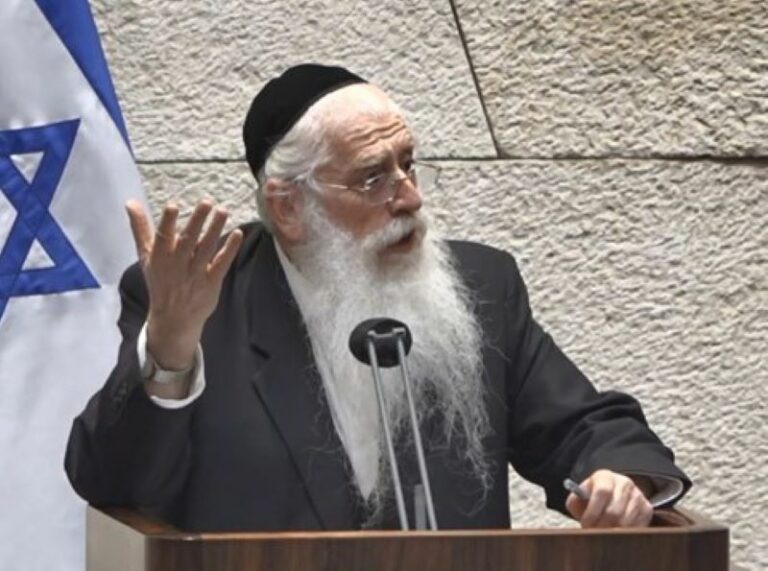Vayakam Bilam ba’boker vayachavosh es asono Vayeilech im sarei Moav (22:21)
After finally receiving permission from Hashem to go with Balak’s agents, Bilaam awoke early the following morning and saddled his donkey to prepare for the trip. Rashi explains that Bilaam had such personal hatred toward the Jews that when he received his coveted permission to travel to curse them, he awoke early and personally prepared his donkey with alacrity so that he could leave quickly.
Hashem remarked, “Wicked one, their forefather Avrohom already preceded you when he woke up early when departing for the Akeidah and personally saddled his donkey for the trip (Bereishis 22:3).” What is the deeper lesson to be taken from Bilaam’s alacrity in attempting to curse the Jewish people, and in what way did the fact that Avrohom already “beat him to it” protect us from his curses?
The following insightful, if perhaps apocryphal, story will help illustrate the answers to these questions. A man who hadn’t been known in his youth for his intellectual abilities went on to become a great Rav and Torah scholar. When asked about the key to his success, he attributed it not to his natural talents, but to his unparalleled diligence and perseverance in his studies.
He explained that he moved into an apartment in which one of his neighbors was a bartender who worked late hours, and the other neighbor was a newspaper delivery boy who worked early in the morning. Every night when the Rav grew tired and wanted to close the book he was studying to go to sleep, he asked himself how he could stop his studies when his neighbor was still awake working hard to make a few dollars. As a result, he pushed himself to continue studying until he heard his neighbor come back in the wee hours of the night.
In the morning, the Rav was roused from his sleep by the delivery boy’s loud alarm clock blaring through the apartment’s thin walls. Exhausted from his late night, he turned over to go back to sleep when he again wondered, “If my neighbor is already awake serving his boss, shouldn’t I wake up to serve my Boss?” This became his daily routine, and despite his admitted lack of natural intellectual abilities, the long hours he put in added up and helped him become a great scholar.
In light of this story, we can now appreciate Rav Moshe Feinstein’s answer to our questions. He explains that Hashem expects the Jewish people to study Torah and perform mitzvos with at least as much effort and exertion as the non-Jews invest in accomplishing and attaining their personal goals and desires. The wicked Bilaam intended to create an accusation against the Jews when he demonstrated his commitment to his beliefs by waking up at the break of dawn and personally preparing his donkey for the journey. If the Jews didn’t match his dedication in their service of Hashem, he hoped that he would be able to prosecute and curse them. Fortunately, Hashem was able to defend us by pointing out that our righteous forefather Avrohom had already done the same thing when serving Hashem at the Akeidah.
We all know workaholics who are married to their jobs – the medical resident, the young attorney hoping to make partner, the up-and-coming investment banker. Let us learn from their dedication to working for their temporal bosses and use it to inspire ourselves to reach higher levels in serving the ultimate Boss.
Vaya’amod malach Hashem b’mishol ha’k’ramim gader mizeh v’gader mizeh (22:24)
Although this week’s parsha is named for Balak, in reality the wicked Bilaam is the focus of the action. Although at first glance it seems that this is the first time that we are being introduced to Bilaam in the Torah and that the events described therein have no connection to earlier episodes, our Sages reveal to us the depth of the Torah and open our eyes to see that this isn’t the case. The Medrash Tanchuma (Vayeitzei 13) and Targum Yonason ben Uziel (22:5) teach us an amazing fact: they write that Bilaam was none other than Lavan, the father of Rochel and Leah.
Using this concept, the Tosefes Beracha offers a fascinating explanation of an episode in the parsha. Hashem attempted to impede Bilaam’s journey by sending an angel to block his path, but only Bilaam’s donkey saw the sword-wielding angel. The Torah tells us that the angel stood in the vineyards, with a fence on either side of it. Rashi cryptically comments that the fences were made of stones. What is Rashi trying to teach us?
When Yaakov parted from his father-in-law Lavan, Lavan proposed a peace treaty between them. They took stones and made a mound, which Lavan said would serve as a witness if either of them attempted to cross over it for unfriendly purposes (Bereishis 31:45-49). The Tosefes Beracha suggests that Rashi is teaching us that the angel was standing guard next to the fence of stones, for it was the very same mound of rocks at which Yaakov and Lavan made their covenant of peace. When Bilaam, who we now know was none other than Lavan, attempted to cross it and violate the peace treaty, the sword-wielding angel came out in full force to stop him.
Extending this one step further, the Rosh notes that the Torah records (31:8) that Bilaam was killed with a sword. He explains that when Yaakov and Lavan made their pact, Yaakov placed a sword in the mound of rocks to serve together with the stones as witnesses to their covenant of peace. They agreed that whoever broke the treaty should be punished by the witnesses. For this reason, Bilaam was first warned through being pressed by his donkey against the stone fence. When he refused to take heed, he was killed be’charev, which refers to something already well-known, in this case the very sword which they placed in the mound of rocks to serve as a witness.
Vayiftach Hashem es pi ha’ason vatomer l’Vilaam meh asisi lecha ki hikisani zeh shalosh regalim (22:28)
Hashem attempted to impede Bilaam’s journey by sending an angel to block his path, but only Bilaam’s donkey saw the sword-wielding angel. When the donkey attempted to turn to avoid the angel, Bilaam grew angry at the donkey, striking it and threatening to kill it. Hashem opened the donkey’s mouth and it asked him, “What have I done to you that you struck me these three times?” Did Bilaam’s donkey actually speak to him in the physical sense to which we are accustomed?
The Ibn Ezra quotes a dispute regarding this matter. Some commentators argue that the donkey was unable to speak in the literal sense. The Ibn Ezra explains that this opinion maintains that Hashem only changes the laws of nature to perform miracles on behalf of His righteous prophets. The Ibn Ezra disagrees, noting places where Hashem performed miracles on behalf of non-prophets, and writes that the donkey did indeed speak. Rabbeinu Bechaye concurs and explains that Hashem performed this miracle for the honor of the Jewish people, as if to show Bilaam that even a lowly animal understands that traveling to curse Hashem’s chosen people is inappropriate.
Answers to the weekly Points to Ponder are now available! To receive the full version with answers email the author at [email protected].
Parsha Points to Ponder (and sources which discuss them):
1) The Gemora in Berachos (7a) teaches that Bilaam’s skill was an ability to determine the moment when Hashem was angry and to utter curses at that time, which would then take effect. Did Moshe also possess this ability, and if so, why didn’t he ever use it, and if not, how did Bilaam know more about Hashem’s conduct of the world than Moshe? (Peninim MiShulchan Gevoha)
2) Why do our Sages consider Bilaam wicked when he told Balak’s messengers (22:13, 18) that no matter how much money they gave him, he would go with them only with Hashem’s permission and would only say what Hashem commanded him? (Darkei Mussar, Kuntres Divrei Sofrim 1:24)
3) Why is no mention made of the reaction of Balak’s officers who were accompanying Bilaam to the talking donkey or the revelation of the angel? (Rabbeinu Bechaye, Daas Z’keinim 22:33, Paneiach Raza, Ayeles HaShachar 22:29)
4) Hashem attempted to impede Bilaam’s journey by sending an angel to block his path, but only Bilaam’s donkey saw the sword-wielding angel. When the angel attempted to turn and avoid the angel, Bilaam grew angry at the donkey, striking it and threatening to kill it (22:23). As Bilaam’s power lay in his mouth, why didn’t he simply curse his donkey? (Baal HaTurim, Paneiach Raza, Oznayim L’Torah)
5) On May 24, 1844, Samuel Morse sent the first telegraph message in history. What is the connection between this landmark event and Parshas Balak?
© 2013 by Oizer Alport.










